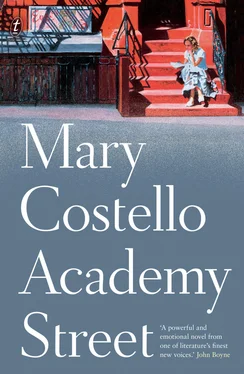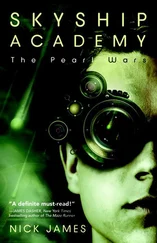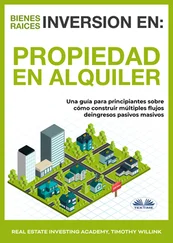Mary Costello - Academy Street
Здесь есть возможность читать онлайн «Mary Costello - Academy Street» весь текст электронной книги совершенно бесплатно (целиком полную версию без сокращений). В некоторых случаях можно слушать аудио, скачать через торрент в формате fb2 и присутствует краткое содержание. Год выпуска: 2014, Издательство: Text Publishing Company, Жанр: Современная проза, на английском языке. Описание произведения, (предисловие) а так же отзывы посетителей доступны на портале библиотеки ЛибКат.
- Название:Academy Street
- Автор:
- Издательство:Text Publishing Company
- Жанр:
- Год:2014
- ISBN:нет данных
- Рейтинг книги:3 / 5. Голосов: 1
-
Избранное:Добавить в избранное
- Отзывы:
-
Ваша оценка:
- 60
- 1
- 2
- 3
- 4
- 5
Academy Street: краткое содержание, описание и аннотация
Предлагаем к чтению аннотацию, описание, краткое содержание или предисловие (зависит от того, что написал сам автор книги «Academy Street»). Если вы не нашли необходимую информацию о книге — напишите в комментариях, мы постараемся отыскать её.
J.M. Coetzee
Academy Street This is an intimate story about unexpected gifts and unbearable losses, and the perpetual ache for belonging. It is exquisitely written and profoundly moving.
Academy Street — читать онлайн бесплатно полную книгу (весь текст) целиком
Ниже представлен текст книги, разбитый по страницам. Система сохранения места последней прочитанной страницы, позволяет с удобством читать онлайн бесплатно книгу «Academy Street», без необходимости каждый раз заново искать на чём Вы остановились. Поставьте закладку, и сможете в любой момент перейти на страницу, на которой закончили чтение.
Интервал:
Закладка:
And then, little by little, year by year, his features settled and his face realigned, and he became complete. And she had been mistaken — there had been no diminution. His curiosity had simply narrowed, grown more focused, gathered inwards. Instead of its previous wide reach his hunger now had an intense clarity and concentration. She would find, strewn on his desk and on his bedroom floor, pages of calculation, mathematical equations, algebra. He made sense of it all. He could prove theorems, solve complex problems in trigonometry, calculus, his tiny figures like hieroglyphics. He could probe the mystery of infinite numbers. Her heart soared. He will be a scientist or an architect or an engineer, she thought. He will one day build a great bridge, or a fine house on a hill, ringed by cypresses and an air of gloom. She stood at his door one evening as he studied. He was hunched over his desk. She wished he were small again. On the window ledge a prism, a pyramid, a multi-coloured cube from his childhood.
‘Dinner’s ready…What’re you at?’ She longed to find a way back to him.
Without moving his head he prodded the cover of a textbook with his finger.
She hovered in the doorway. ‘I had no aptitude for Math in school,’ she said. She shook her head in mock disbelief. ‘How do you do it, Theo, how do you understand all those symbols? It’s beyond me — like a foreign language!’
He stared at her coldly. ‘Is it now? Beyond you? Ever think you might be beyond people? You — and your own fucking foreign language.’ He said each word slowly, brutally.
She could barely walk back to the kitchen.
The next evening he emerged from his room and did not speak, a book propped at the table as he ate. He had begun to judge her.
‘His name is David,’ she said. ‘He’s Irish too, from Dublin, but lives here…or did anyway. We met through mutual friends and had a brief…friendship…He joined the Air Force and I didn’t hear from him. When you were born I wrote him and told him. I sent two letters. He never replied.’ She looked at him, waited. ‘He’s a lawyer here, somewhere in the city. He’s married now. You may have brothers and sisters.’
He said nothing. His face was sullen, his chest rising and falling rapidly.
She got up and went to her bedroom and returned with the newspaper clipping, and left it by his plate.
‘That’s all I know, all I have,’ she said. ‘You have his name now. I do not know his date of birth or his address or anything else.’
She let him read.
‘One day you will want to find him,’ she said distantly.
He asked no questions then or in the days following, or after.
She told Willa.
‘You did the right thing,’ Willa said softly. ‘It’s hard, but the kid will survive. There are worse things than having no papa.’
A long contemptuous silence ensued, times when he simmered, seethed, bristled at just the sight of her in the kitchen. It would have been easier if he’d kicked down doors. She left money and notes on the table, delayed her return from work in the evenings. At weekends he stayed out late, drinking. Her heart was breaking.
One Saturday morning before his graduation a girl emerged from his room into the hall. She looked up, her hair tossed, a jacket in her hand, and saw Tess. Startled, she took a step towards the kitchen door.
‘I’m sorry,’ she said. ‘I didn’t know…I’m very sorry.’
She was young, no more than sixteen, blonde. Her voice was soft, kind, ashamed. Tess looked at her and a fear, an irrational mindless fear that had lain dormant in the far reaches of her mind, unearthed itself: that out there, somewhere in the city, Theo had sisters, brothers. They might live nearby. They might go to the same school, to the same bars and ball games. She could not speak or even nod to the girl. Rising from her mind was the image of her son naked, in the sexual act, rearing up on his sister.
In the following weeks a shift occurred, and a slight truce took hold. Small offerings were made. She found, on the table one evening, a school assignment, The Golden Mean , scored with an A+. She leafed through the paper, pages with tables and columns of numbers, text too — the longest entitled ‘The Fibonacci Sequence’. She read the overview, random paragraphs, the conclusion. She felt a surge of pride, and joy at his return, at the possibilities of his youth and all that lay before him.
There had been a time, briefly, in adolescence when she had feared for him. He had frightened her with his subterranean silence, and a stare so deep she had felt imperilled. She would picture him at school slouched at his desk, distracted, perplexed, his eye scanning the text and then the air, as if searching for the equation for human feeling. And then interludes when his talk grew profuse, fragmented, euphoric, and he could not sleep. Everything — his whole being — disturbed by a storming of the spirit.
She felt his struggle, as if a part of him — some deep Theo part — yet needed begetting. Or was being begot. She waited for that part to be switched on, for the faint little bleeps to sound, and for him to come to. More than once her fear spiked into panic that what she was witnessing were the beginnings of mania, or a schizophrenic breakdown. She prayed. She made deals with God. She worried that he had been bequeathed something terrible by his father, which had lain latent within him until now. She wrestled with herself, feared that her flawed mothering had caused a rupture and unseated some deep psychological disturbance.
And then, in his late teens, the storm began to abate. Clipped by a demon, she thought. A darkness fell on him for weeks, as if he were grieving for an ancient fabulous self, mourning its loss at a deep cellular level, feeling the taming, the tempering, the toll it was taking to beget his mortal self and allow the entity that was Theo to emerge and live and move and have its being in the world.
13
IT HAPPENED FIRST one Sunday morning at Mass, and again, the next day, in line at the hospital cafeteria — the urge to touch a man. Any man, any man’s hand, any man’s arm. Or lean against a man, leave her head on his shoulder. In crowded places, in shops and buses, she had to fight the impulse to reach out. A face was not essential. The view from behind, the broad shoulders, the back of a head, a neck. A hirsute hand on a wallet, on a tray moving alongside her in the hospital canteen, could bring on the urge. Her fingers twitched and she longed to touch skin, lay her hands on a head, be privy to a man. One night at a retirement party for a colleague she stood in the corner of the room watching people, couples, their body language, their secret signs. Her friend Priscilla was at one end of the room, her husband at the other. Tess saw him turn, find his wife. She saw the look they exchanged. Later at the bar he kissed the top of her head. She had an image of them driving home later, whispering, giggling, as they undressed in the dark, their son sleeping in the next room. She looked around at all the wives. Did they realise their good fortune? How, at any moment, day or night, they could lie against their men, lay claim to them, lay their heads on chests, their hands on heads.
On the crowded subway a few days later a man seated next to her accidentally touched her foot. He was wearing a light suit, navy blue, expensive. His beautiful hands rested on his legs. His left leg was partly touching hers. She felt the rise and fall of his breath. Under the fabric his thigh muscles flexed. Weak, she left her hands on her lap. The need to touch him was immense. The train curved, eased into a bend and her body leaned lightly against his. She closed her eyes, imagined him raising an arm, taking her into his wingspan. He shifted to free himself. Then the train was speeding into a station and he was on his feet, moving along the aisle. She rose and pushed through and stood behind him. He was poised to exit. Outside, on the platform, a million eyes, and the door opened with a hiss and, in the crush and split second that his body leaned forward, she put a hand on his arm and pressed her face into his back, and simultaneously closing her eyes and inhaling she moved with him, in communion with him and with the body of passengers alighting from the train. Pardon me . Her voice was clipped, confident, her tone sincere, as if she had merely bumped him accidentally, absent-mindedly, so preoccupied with life was she, and then carried on, stepping to the left when he went right, going, against her will, on her way.
Читать дальшеИнтервал:
Закладка:
Похожие книги на «Academy Street»
Представляем Вашему вниманию похожие книги на «Academy Street» списком для выбора. Мы отобрали схожую по названию и смыслу литературу в надежде предоставить читателям больше вариантов отыскать новые, интересные, ещё непрочитанные произведения.
Обсуждение, отзывы о книге «Academy Street» и просто собственные мнения читателей. Оставьте ваши комментарии, напишите, что Вы думаете о произведении, его смысле или главных героях. Укажите что конкретно понравилось, а что нет, и почему Вы так считаете.












